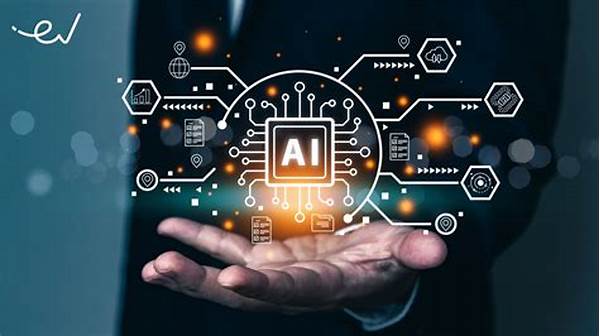In the bustling archipelago of Indonesia, a new revolution is quietly unfolding—one that’s reshaping the landscape of business as we know it. Businesses across the nation are tapping into the power of Artificial Intelligence (AI), and they’re not just dipping their toes in the water; they’re diving in headfirst. Imagine AI as the unsung hero in the boardroom, the unseen force behind the scenes, the digital genie waiting to grant the business world three wishes. So why should you care about how AI impacts Indonesian businesses? Because it’s the game-changer, the differentiator, the secret sauce that whispers competitive advantage while everyone else is struggling to keep up. This technological leap is not just for the Steve Jobs of the world but for every small and medium enterprise tucked away in Jakarta, Bali, or Yogyakarta.
Read More : Top Experts Predict The Future Of Ai
These businesses are like actors on a grand stage, and AI is their scriptwriter, creating narratives of success through predictive analytics, chatbots, and automated processes. It is the financial analyst that never clocks out, tirelessly scrutinizing an ocean of data to find the treasure hidden within. Imagine having a team member who doesn’t need coffee breaks, who analyses market trends faster than you can say “digital transformation.” That’s AI for you. The economic impact is echoed by research from PwC, which estimates that AI will contribute $15.7 trillion to the global economy by 2030. A significant slice of that pie will belong to countries embracing AI, and Indonesia is making sure it gets its fair share.
Transforming the Traditional
AI is not a mere tool; it’s the catalyst sparking the transformation of traditional businesses into digital powerhouses. Take retail, for instance, where AI algorithms predict consumer behaviors more accurately than Nostradamus could ever dream. Indonesian retailers are using AI for stock management and to personalize customer experiences, ensuring that each click, each visit, is optimized for satisfaction and sales.
AI in the Indonesian Workforce
One of the most intriguing yet challenging aspects of how AI impacts Indonesian businesses is the effect on the workforce. The fear of AI replacing jobs is a usual tale spun by naysayers. However, in reality, AI has opened new opportunities, demanding a workforce ready for change, willing to tackle new roles that require creativity and emotional intelligence, skills that machines, no matter how advanced, still cannot duplicate.
Driving Economic Growth
AI’s impact is not confined to large corporations. Small and medium-sized enterprises (SMEs), the backbone of Indonesia’s economy, are finding novel ways to integrate AI. Whether it’s a café using AI-driven insights to fine-tune its menu or a local designer using AI to predict fashion trends, the possibilities are endlessly exciting. As SMEs continue to adopt AI, they contribute not only to their growth but to the country’s GDP, setting Indonesia on a path to technological prosperity.
In a digital age rife with opportunities, the significance of AI in evolving the business landscape cannot be understated. It’s akin to discovering a digital compass in unchartered waters of innovation, guiding businesses to new horizons of efficiency and profitability. AI is the navigator steering businesses, from startups to conglomerates, toward a future that’s not just embraced but eagerly anticipated.
AI’s Role in the Journey
To understand how AI impacts Indonesian businesses, consider its role as both mentor and student. AI learns, adapts, and consistently strives to drive better outcomes, be it through customer service or operational processes. It’s a silent partner in negotiations, optimizing supply chains and enhancing decision-making capabilities by crunching numbers while managers sleep. Isn’t it comforting to know that at least some part of the business never rests?
Objectives: The Power of AI in Indonesian Enterprises
Navigating the Future of Business with AI
As we venture further into the 21st century, AI’s influence diminishes not just risks but also magnifies opportunities. Picture an entrepreneur using AI to crack open the treasure chest of consumer data, revealing patterns and preferences previously hidden under the veil of randomness. Rather than fearing obsolescence, businesses that grasp how AI impacts Indonesian businesses have the opportunity to thrive amidst this digital upheaval, capitalizing on automated efficiency and predictive prowess.
Challenges and Opportunities
Yet, every rose has its thorns, and AI is no exception. Ethical considerations loom large, with businesses challenged to implement AI responsibly. Ensuring transparency and addressing biases are just as critical as achieving profitability. But here’s the silver lining: solving these challenges is not only possible but ushers in the next wave of innovative thinking.
Insights Into AI’s Transformative Power in Indonesia
To delve deeper into how AI impacts Indonesian businesses, consider real-life applications and testimonials. Companies herald their success stories, like PT Super Indo adopting AI for supply chain optimization resulting in lead time reduction, thereby improving shelf availability. Or how Gojek, Indonesia’s super app, leverages AI for everything from driver allocation to user engagement, underscoring how technology can lead to enhanced customer satisfaction and business growth.
Practical Tips for Implementing AI in Business
In conclusion, while the future promises exciting possibilities, it’s pivotal to remember that the human touch remains irreplaceable. With strategic implementation and a shared vision, AI can elevate Indonesian businesses to unprecedented heights, turning potential into reality, and challenges into triumphs.


